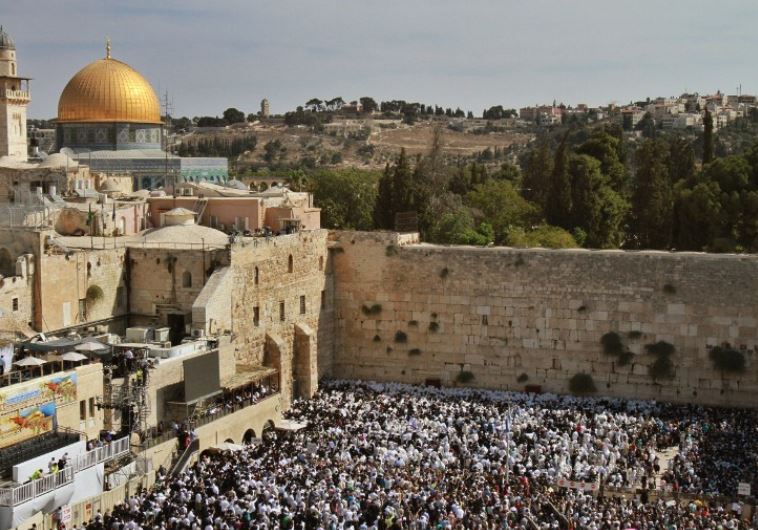Space at the Kotel for progressive Judaism means more than a new shul
Far beyond the new physical space, this has consequences that set the stage for a truly pluralistic Israel.
 Jews gather to pray at the Western Wall during Succot(photo credit: AFP PHOTO)Updated:
Jews gather to pray at the Western Wall during Succot(photo credit: AFP PHOTO)Updated: